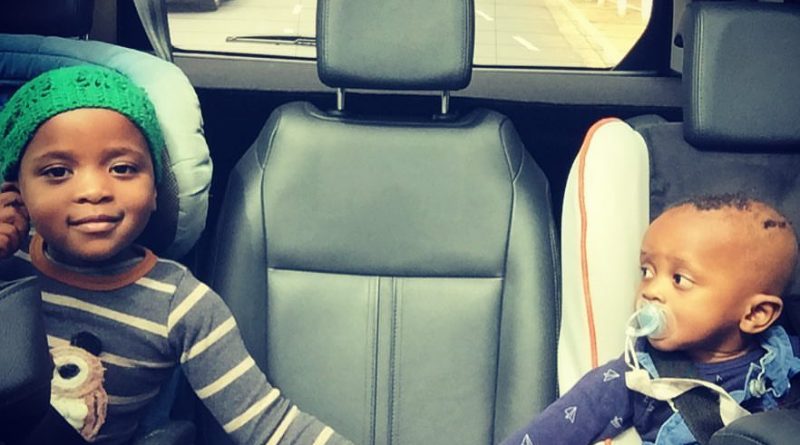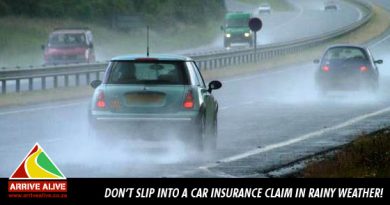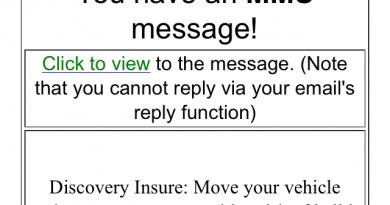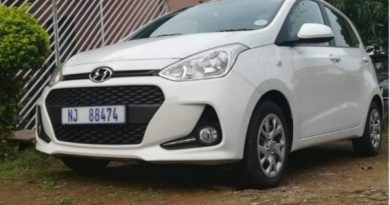5 Essential tips for driving safely with children
Keep your little 1’s safe on the road.
March madness means different things to different people. To us in sunny South Africa, it refers to the increase in accidents on our roads over the March and April holidays. This is meant to be a glorious time with friends and family before launching back into school and work, but can often end in tragedy and financial hardship.
To change this and make it safer for you and your family to travel, we’ve researched the best tips for driving with children in the car.
Tip #1: Obey the car seat rules and regulations.
International research shows that the use of a properly-fastened car or booster seat significantly reduces the chance of death or serious injury in crashes. In South Africa, new legislation was added to the National Road Traffic Act in 2015, stating that all children who are 3 years old and younger must be strapped into a car seat when travelling in a car.
Unfortunately, not many parents have heeded this legal requirement, with less than 7% of children in cars using car seats.
As parents, caregivers, and responsible adults, we need to step up, buckle up, and protect our children in the car. There’s no reason good enough not to.
Tip #2: The best car seat to use.
Not only is the use of a car or booster seat a legal requirement, but it just makes sense. To help you find the best seat for your children, we’ve narrowed down which seats are suitable for the different age, height, and weight ranges.
There are 3 main types of car seats:
- Infant car seats: Rear-facing seats suitable for newborns up to 10 or 15kg, or up to 70 or 80cm, depending on the brand. These seats usually have a handle for easy carrying.
- Convertible car seats: Larger and heavier, these seats are known as 3-in-1 or all-in-1 models because they’re rear-facing at first for newborns and can be turned forwards for toddlers up to 130cm in height or up to 18 or 36kg, and lastly, can be converted into a booster seat for children weighing up to 45kg. These ranges depend on the brand.
- Booster seats: These seats use the car’s seat belts to secure the seat and child, and are designed for children ages 4+, who weigh at least 18kg (depending on the brand).
Helpful hints:
- Check that the car seat has a certification sticker displayed somewhere on the seat, showing the important numbers and codes, including the required ECE and the regulation number, R44-04.
- You can save more by buying a convertible car seat and use it at the newborn stage and then when your child grows up and becomes a toddler.
- It can also be cheaper to buy a travel system, which is when you get the infant seat and pram sold together.
Tip #3: Correctly position everyone and everything in the car.
The general guide here is that if your child is under 12 years old or under the average weight and height for a 12-year-old, they should ride in the backseat. Not only can this age be extremely vulnerable in the front seat, but they can also be fidgety and distracting to the driver.
You should also consider where items are placed in your car. You don’t want to place a heavy or easily moveable item (even if it’s light) directly behind where your children are sitting. If you brake hard, these objects could fall onto them. If you have no alternative, then consider using cargo anchors to secure these items.
Tip #4: Insurance that includes emergency roadside assistance.
An accident, no matter how small, can have serious emotional, physical and financial consequences. Having the right insurance in place will help you deal with the situation. What can really help you in these moments is access to a roadside assistance service that you don’t have to pay for.
King Price Insurance, for instance, includes a roadside assist service with their comprehensive car insurance. This service will tow your car to an approved destination if you’ve broken down or been in an accident and can’t drive. Through their roadside assist service, King Price will also send help if you’ve had a mechanical or electrical breakdown, flat tyre, flat battery, or if you’ve run out of fuel. They’ll even pay for accommodation for the night if you’ve broken down more than 100km from home.
If you don’t currently have car insurance or if your current policy doesn’t offer this service, it’s worth getting a quote from King Price. Not only do they include roadside assist with their comprehensive cover, but your premiums will also decrease every month in line with the depreciating value of your car.
You can get a quote online, call their sales team on 0860 50 50 50, or send them an email using king@kingprice.co.za
Child Restraints and Road Safety – Buckle in Your most Precious Cargo! https://t.co/HzBeYGcYmL #ArriveAlive @ImperialRdSfty @WheelWellZA @RAF_SA pic.twitter.com/CkfWIald3Y
— Arrive Alive (@_ArriveAlive) March 26, 2018




